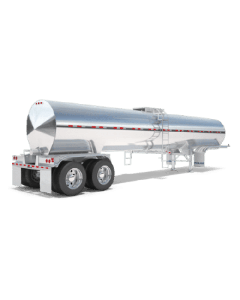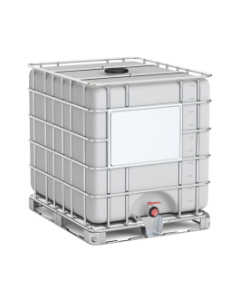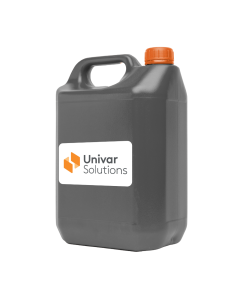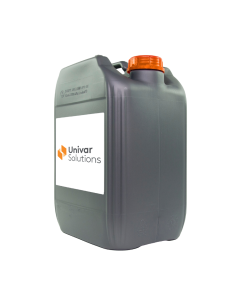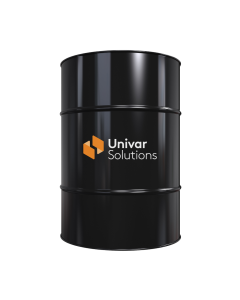We’re here to provide you with more information or help answer any questions you might have. Send us a note and we’ll get back to you as soon as possible.
Heat Transfer Fluid
Heat transfer fluids play an important role in many industrial processes that require heating or cooling. They are used to cool one side of a process while transporting and storing thermal energy on the other side. This allows for a more efficient overall process. There are many different types of heat transfer fluids, each with its own advantages and disadvantages. The most commonly used heat transfer fluids are oil and gas. However, other options include natural gas, refining, asphalt processing and storage, and gas to liquid. The best heat transfer fluid for your application will depend on your specific needs and goals. Oil and gas heat transfer fluids are ideal for applications that require high temperatures. They have a high boiling point and can withstand extreme temperatures without breaking down. Natural gas is another option that can be used in high-temperature applications. It is less expensive than oil and gas but has a lower boiling point. Refining is another option for high-temperature applications. It is highly corrosion resistant but can be expensive. Asphalt processing and storage is a common application for heat transfer fluids.
| Product Name | Supplier | Package Type | Weight | Price (UOM) | Price (Package) | ||
|---|---|---|---|---|---|---|---|
| ANTIFREEZE BLUE 029208 B/RAIL 1KG BULK | UNIVAR | BULK | 1.00 kgs | -- |
Request Quote
|
-- | |
|
|
|||||||
| ANTIFREEZE BLUE B/RAIL 50% 1KG BULK | UNIVAR | BULK | 1.00 kgs | -- |
Request Quote
|
-- | |
|
|
|||||||
| ANTIFREEZE BS6580 BLUE 50% 1KG BULK | UNIVAR | BULK | 1.00 kgs | -- |
Request Quote
|
-- | |
|
|
|||||||
| ANTIFREEZE BS6580 RED 1KG BULK | UNIVAR | BULK | 1.00 kgs | -- |
Request Quote
|
-- | |
|
|
|||||||
| ANTIFREEZE CAFLON BS6580 BLUE 1KG BULK | UNIVAR | BULK | 1.00 kgs | -- |
Request Quote
|
-- | |
|
|
|||||||
| ANTIFREEZE CAFLON OAT 1KG BULK | UNIVAR | BULK | 1.00 kgs | -- |
Request Quote
|
-- | |
|
|
|||||||
| ANTIFREEZE CAFLON OAT 50% 1KG BULK | UNIVAR | BULK | 1.00 kgs | -- |
Request Quote
|
-- | |
|
|
|||||||
| CAFLON COOLANT U 50% 1KG BULK | UNIVAR | BULK | 1.00 kgs | -- |
Request Quote
|
-- | |
|
|
|||||||
| CAFLON COOLANT BLUE 1KG BULK | UNIVAR | BULK | 1.00 kgs | -- |
Request Quote
|
-- | |
|
|
|||||||
| ANTIFREEZE CAFLON OAT YELLOW 1KG BULK | UNIVAR | BULK | 1.00 kgs | -- |
Request Quote
|
-- | |
|
|
|||||||
| CAFLON COOLANT BLUE 60% 1KG BULK | UNIVAR | BULK | 1.00 kgs | -- |
Request Quote
|
-- | |
|
|
|||||||
| A/FREEZE CAFLON OAT YELLOW 50% 1KG BULK | UNIVAR | BULK | 1.00 kgs | -- |
Request Quote
|
-- | |
|
|
|||||||
| ANTIFREEZE CAFLON OAT GREEN 1KG BULK | UNIVAR | BULK | 1.00 kgs | -- |
Request Quote
|
-- | |
|
|
|||||||
| ANTIFREEZE 50% (V/V) B/RAIL 1075KG IBC | UNIVAR | IBC | 1,075.00 kgs | -- |
Request Quote
|
-- | |
|
|
|||||||
| ANTIFREEZE AL39 1124KG IBC | UNIVAR | IBC | 1,124.00 kgs | -- |
Request Quote
|
-- | |
|
|
|||||||
| ANTIFREEZE B/RAIL 904KG IBC | UNIVAR | IBC | 904.00 kgs | -- |
Request Quote
|
-- | |
|
|
|||||||
| ANTIFREEZE BS6580 BLUE 50% 1056KG IBC | UNIVAR | IBC | 1,056.00 kgs | -- |
Request Quote
|
-- | |
|
|
|||||||
| ANTIFREEZE CAFLON BS6580 BLUE 1131KG IBC | UNIVAR | IBC | 1,131.00 kgs | -- |
Request Quote
|
-- | |
|
|
|||||||
| ANTIFREEZE CAFLON OAT 50% 1000KG IBC | UNIVAR | IBC | 1,000.00 kgs | -- |
Request Quote
|
-- | |
|
|
|||||||
| CAFLON COOLANT U CONCENTRATE 1127KG IBC | UNIVAR | IBC | 1,127.00 kgs | -- |
Request Quote
|
-- | |
|
|
|||||||
| CAFLON COOLANT U 50% 1127KG IBC | UNIVAR | IBC | 1,127.00 kgs | -- |
Request Quote
|
-- | |
|
|
|||||||
| ANTIFREEZE CAFLON OAT YELLOW 1113KG IBC | UNIVAR | IBC | 1,113.00 kgs | -- |
Request Quote
|
-- | |
|
|
|||||||
| ANTIFREEZE G48 GREEN 50% SOL 1075KG IBC | UNIVAR | IBC | 1,075.00 kgs | -- |
Request Quote
|
-- | |
|
|
|||||||
| A/FREEZE CAFLON OAT YELLOW 50% 1000KG IBC | UNIVAR | IBC | 1,000.00 kgs | -- |
Request Quote
|
-- | |
|
|
|||||||
| ANTIFREEZE CAFLON OAT GREEN 1136KG IBC | UNIVAR | IBC | 1,136.00 kgs | -- |
Request Quote
|
-- | |
|
|
|||||||
| ANTIFREEZE CAFLON OAT 1113KG IBC | UNIVAR | IBC | 1,113.00 kgs | -- |
Request Quote
|
-- | |
|
|
|||||||
| A/FREEZE CAFLON OAT YELLOW 50% 1065KG IBC | UNIVAR | IBC | 1,065.00 kgs | -- |
Request Quote
|
-- | |
|
|
|||||||
| ANTIFREEZE BS6580: 92 BLUE 22.26KG PLASTIC BOTTLE | UNIVAR | PLASTIC BOTTLE | 22.26 kgs | -- |
Request Quote
|
-- | |
|
|
|||||||
| ANTIFREEZE CAFLON OAT 22.26KG PLASTIC BOTTLE | UNIVAR | PLASTIC BOTTLE | 22.26 kgs | -- |
Request Quote
|
-- | |
|
|
|||||||
| ANTIFREEZE BS6580 BLUE 50% 21.12KG PLASTIC JERRYCAN | UNIVAR | PLASTIC JERRYCAN | 21.12 kgs | -- |
Request Quote
|
-- | |
|
|
|||||||
| ANTIFREEZE CAFLON BS6580 BLUE 28.28KG PLASTIC JERRYCAN | UNIVAR | PLASTIC JERRYCAN | 28.28 kgs | -- |
Request Quote
|
-- | |
|
|
|||||||
| ANTIFREEZE CAFLON OAT 50% 21.12KG PLASTIC JERRYCAN | UNIVAR | PLASTIC JERRYCAN | 21.12 kgs | -- |
Request Quote
|
-- | |
|
|
|||||||
| ANTIFREEZE CAFLON OAT YELLOW 22.62KG PLASTIC JERRYCAN | UNIVAR | PLASTIC JERRYCAN | 22.62 kgs | -- |
Request Quote
|
-- | |
|
|
|||||||
| A/FREEZE CAFLON OAT YELLOW 50% 21.3KG PLASTIC JERRYCAN | UNIVAR | PLASTIC JERRYCAN | 21.30 kgs | -- |
Request Quote
|
-- | |
|
|
|||||||
| ANTIFREEZE CAFLON OAT 22.26KG PLASTIC JERRYCAN | UNIVAR | PLASTIC JERRYCAN | 22.26 kgs | -- |
Request Quote
|
-- | |
|
|
|||||||
| ANTIFREEZE CAFLON BS6580 BLUE 21KG PLASTIC JERRYCAN | UNIVAR | PLASTIC JERRYCAN | 21.00 kgs | -- |
Request Quote
|
-- | |
|
|
|||||||
| ANTIFREEZE BS6580 1113KG PUMPOVER | UNIVAR | PUMPOVER | 1,113.00 kgs | -- |
Request Quote
|
-- | |
|
|
|||||||
| ANTIFREEZE CAFLON OAT 1060KG PUMPOVER | UNIVAR | PUMPOVER | 1,060.00 kgs | -- |
Request Quote
|
-- | |
|
|
|||||||
| ANTIFREEZE CAFLON OAT 50% 1000KG PUMPOVER | UNIVAR | PUMPOVER | 1,000.00 kgs | -- |
Request Quote
|
-- | |
|
|
|||||||
| ANTIFREEZE 50% (V/V) B/RAIL 220KG STEEL DRUM | UNIVAR | STEEL DRUM | 220.00 kgs | -- |
Request Quote
|
-- | |
|
|
|||||||
| ANTIFREEZE BS6580 BLUE 50% 216.5KG STEEL DRUM | UNIVAR | STEEL DRUM | 216.50 kgs | -- |
Request Quote
|
-- | |
|
|
|||||||
| ANTIFREEZE CAFLON OAT 228KG STEEL DRUM | UNIVAR | STEEL DRUM | 228.00 kgs | -- |
Request Quote
|
-- | |
|
|
|||||||
| A/FREEZE CAFLON OAT YELLOW 50% 218.33KG STEEL DRUM | UNIVAR | STEEL DRUM | 218.33 kgs | -- |
Request Quote
|
-- | |
|
|
|||||||
| ANTIFREEZE CAFLON OAT GREEN 232.88KG STEEL DRUM | UNIVAR | STEEL DRUM | 232.88 kgs | -- |
Request Quote
|
-- | |
|
|
|||||||
| ANTIFREEZE CAFLON BS6580 BLUE 231.86KG STEEL DRUM | UNIVAR | STEEL DRUM | 231.86 kgs | -- |
Request Quote
|
-- | |
|
|
|||||||
| ANTIFREEZE CAFLON OAT YELLOW 228KG STEEL DRUM | UNIVAR | STEEL DRUM | 228.00 kgs | -- |
Request Quote
|
-- | |
|
|
|||||||
| ANTIFREEZE CAFLON OAT 50% 205KG STEEL DRUM | UNIVAR | STEEL DRUM | 205.00 kgs | -- |
Request Quote
|
-- | |
|
|
|||||||
| ANTIFREEZE CAFLON BS6580 BLUE 1130KG IBC | UNIVAR | IBC | 1,130.00 kgs | -- |
Request Quote
|
-- | |
|
|
|||||||
| ANTIFREEZE CAFLON BS6580 BLUE 28KG PLASTIC JERRYCAN | UNIVAR | PLASTIC JERRYCAN | 28.00 kgs | -- |
Request Quote
|
-- | |
|
|
|||||||
| ANTIFREEZE CAFLON BS6580 BLUE 230KG PLASTIC DRUM | UNIVAR | PLASTIC DRUM | 230.00 kgs | -- |
Request Quote
|
-- | |
|
|
|||||||
Get in touch, 24 hours a day, 7 days a week.


